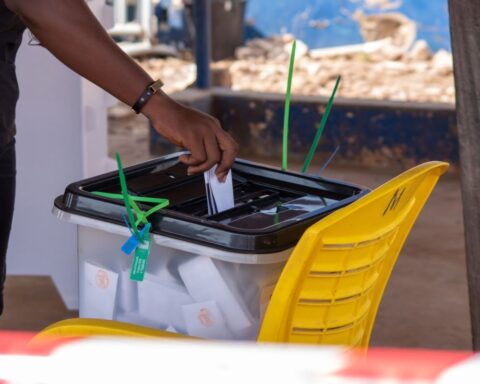During the 2024 election campaign, then-candidate John Dramani Mahama promised to ensure that at least 30% of his political appointments, including his cabinet, would be women.
With a female running mate in the form of Dr. Jane Opoku-Agyemang by his side, it was a bold promise, especially given that female representation in leadership in the country has historically lagged.
According to a report by the United Nations Development Program (UNDP) in 2021, Ghana’s female representation in government hit low points.
The report revealed that after the 2016 general elections, Ghana’s Parliament recorded 35 female MPs (13%) and 240 male MPs (87%) out of the 275 Members of Parliament.
The 2020 general elections recorded 40 female MPs (14.5%) and 235 (85.4%) male MPs.
With the recent passage of Ghana's Affirmative Action Act in 2024, which mandates increasing women’s participation in governance to 30% by 2026 and 50% by 2030, Mahama’s pledge seemed timely and achievable.
However, three months into his administration, it’s becoming increasingly clear that this promise is seriously jeopardized.
Current Shape of Administration
As of March 2025, President Mahama’s cabinet consists of 19 ministers, but only two are women.
Moreover, his other government appointments have not been as gender inclusive as promised.
Of the 26 government ministers appointed, only four have been women. For regional ministers, President Mahama has appointed only three women, with the remaining 13 slots going to men.
For the State Owned Enterprises (SOE), only three female Chief Executive Officers (CEOs) have been appointed.
In total, women represent only 19% of Mahama’s government appointments.
During his first term as president from 2012 to 2017, President Mahama’s administration achieved a high bar for women’s representation, with women making up 27% of his substantive ministers in 2013.
However, his current administration is failing to meet the current pledge and the legal framework set by the Affirmative Action Act.
Critics Apply Pressure on President Mahama
Some prominent political voices have criticized the President for failing to keep his pledge.
Ms. Janet Asana Nabla, the founder and 2024 flagbearer of The People’s National Party (PNP), has criticised President Mahama for failing to uphold his promise.
She stated that the President’s current administration has a “blatant disregard for gender equality and the law," and has called for the issue to be rectified.
The Minority Leader in Parliament, Mr. Afenyo-Markin, also added his voice to the failure of the President to uphold his promise of gender balance in his government.
“It appears President John Mahama is not willing to stick to his own promise made to Ghanaians prior to the 2024 elections that nearly 30% of all appointments would go to women in his government,” he said.
On platforms like X (formerly Twitter), segments of the public have also echoed their frustration, with some users lamenting that Mahama’s promise of better female representation has hit a wall.
“He promised that 30% of his cabinet would be women. Including the Veep, only 14% of the cabinet are women,” a user posted.
There’s Still Time to Fulfill The Pledge
To be fair, Mahama’s administration is still in its infancy, and more appointments—particularly deputy ministers and heads of state agencies—are yet to come.
The goal of 30% fulfillment of women in his administration could be reached once those roles are filled.
Moreover, the Affirmative Action Act provides a clear mandate, and Mahama’s failure to align his appointments with the Act would undermine its authority.
In not fulfilling his promise, President Mahama risks not only breaking his pledge and disappointing his supporters but also missing an opportunity to set a precedent for future administrations.
He needs to respond to critics by articulating a clear strategy for how his government will meet the 30% target across all levels of governance.
Increasing the number of women in deputy minister roles and appointing more female CEOs could help balance the scales.
However, the President must appoint qualified persons to fill those roles, not just for ticking a checkbox.
If he allows this pledge to falter, the President could squander his goodwill and support from gender activists.





